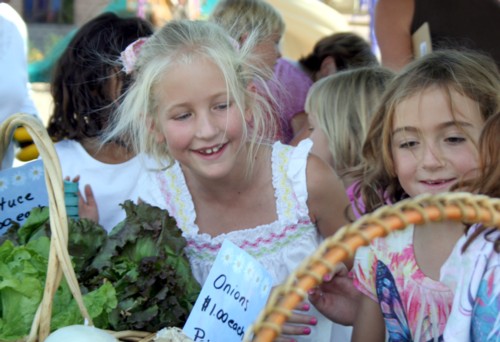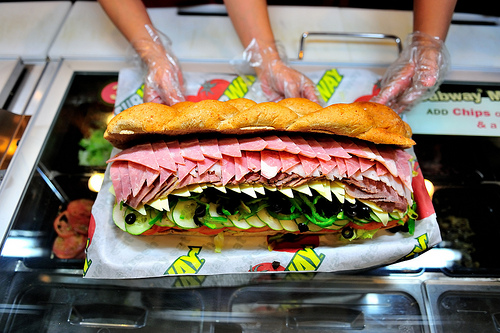Ariz.-based Eurofresh Farms has, according to The Packer, developed a new food safety system, EnviroLock, that requires workers, and anyone entering produce-producing greenhouses, to pass through a sanitation facility before entering, wash  and disinfect their hands and forearms, and don color-coded hospital-style scrubs, shoes, hairnets and gloves through the duration of their shift of stay.
and disinfect their hands and forearms, and don color-coded hospital-style scrubs, shoes, hairnets and gloves through the duration of their shift of stay.
That’s because anything that comes into contact with fresh produce has the potential to contaminate, is difficult to wash off, and outbreaks of foodborne illness are disastrous.
In Chicago, the Public School gardens are full of chubby tomatoes, heavy squash and fragrant basil but none of the produce ever finds its way into CPS lunchrooms. Instead, because of rules set by the district and its meal provider, the food is sold or given away.
The Chicago Tribune reports that the policies are in place despite the high obesity rate among Illinois children and experts’ concerns that young people are eating few fresh vegetables.
And that’s the problem with these stories, playing safety off against local and little kids.
Why not teach kids about food safety; instead of complaining that local is magically immune to microorganisms, embrace and market the food safety  advantages of local markets – but only if it can be backed up with data.
advantages of local markets – but only if it can be backed up with data.
Put the rhetoric aside and combine microbiologically safe with local – that means answering the same questions the big, controlled access greenhouses have to answer to sell their produce to Walmart and Costco and others: know and test the source of irrigation water, pay attention to the quality of soil amendments, let kids know the importance of handwashing and how dangerous bugs move around.
Big or small, be the bug, and be safe.

 an electrician.
an electrician..jpg) (Canada), riffing on Tim Hortons donuts.
(Canada), riffing on Tim Hortons donuts.
 Maryann O’Neill, principal of nearby Montini Catholic High School in Lombard, told
Maryann O’Neill, principal of nearby Montini Catholic High School in Lombard, told